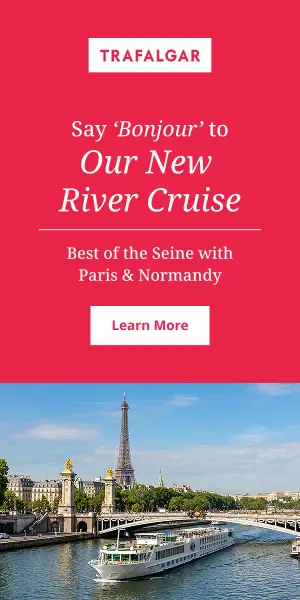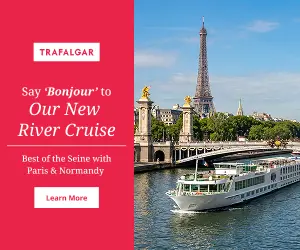‘Mama Chimp’ Guides Uganda Tourism Toward a New Era
by David Cogswell
Lilly Ajarova, CEO of Uganda Tourism, with chimps in Kibale National Park.
Gorilla trekking, tramping through the mountain jungle in search of gorillas, is a real wilderness adventure, but it’s professionally structured and organized so that tourists can find the gorillas and encounter them without being in danger.
The gorilla trekking experience is physically challenging, requiring hours of hiking through dense rainforest, climbing steep mountain inclines while being careful to avoid slipping on damp, slippery logs hidden in the thick grasses, or being poked or slapped with branches. But in Rwanda and Uganda, today the activity is so well managed that it comes off easily, so much so that one could overlook how much work it took to make the experience as accessible as it is for tourists now.
It has taken years of dedication by many people with specialized knowledge to make gorilla trekking possible. Starting from scratch, someone had to go out into the uninhabited wilderness, learn the features of the land, create trails, find the gorillas, work with them over months or years to habituate them to human beings so that the encounters would be safe, and create an infrastructure that would make it possible for tourists to be able to have the experience that is available today.
Meet Lilly Ajarova, CEO of Uganda Tourism. She is one of the people whose work over a period of years has made the gorilla trekking experience possible. Appointed last January, Ajarova is still new to her position at the head of Uganda’s tourism marketing organization. But her career leading to her present position at the pinnacle of Uganda’s tourism industry took her along a unique path that provided many intensive experiences that prepared her well for her present mission.
Formative experiences
After earning an MBA from the Eastern and Southern African Management Institute in Tanzania and a post-graduate degree in tourism management from the International Tourism Management College in Krems, Austria, Ajarova returned to Uganda and got a job with a tour operator. For a year, she gathered experience putting itineraries together and occasionally guiding tours in the bush. Then she landed a job as a tour product development manager with the Uganda Wildlife Authority.
The job required traveling to Uganda’s various national parks to identify the potentials for tourism development. It involved some marketing but was primarily focused on creating tour itineraries. Unlike tour development in cities, putting tours together in wilderness areas required building from the ground up.
“I was part of a team of researchers and rangers who would go out to habituate the gorillas, creating forest walk trails,” she said. “You’d go to the forest and you don’t know what is where, so you’re just walking in the forest, identifying things. We’d come across a waterfall, then create trails to get tourists to the waterfall and different scenic sites within the national parks, whatever would give a good experience to the tourist, whether it was for bird watching, hiking or animal viewing.”
The animals were constantly migrating, so finding them one day would not guarantee that you would find them again. The mountain areas presented a unique range of challenges.
“With the adventure products we have in the Rwenzori Mountains and Mount Elgon, our job was putting the infrastructure in place, the sleeping camps along the way,” said Ajarova. “To get to the peak of Rwenzori, which is 5,800 meters high, and to do the complete circuit, you need seven days. We had to create the camping trails. In the wetlands areas, we had to put in wooden walkways.”
Chimpanzee encounter
Creating the tourism infrastructure was a gigantic task that had to be undertaken patiently day by day. For those who work in the wilderness, nature is never short of surprises. One experience, in particular, in Kibale National Park, had a powerful impact on Lilly Ajarova and the future course of her life.
“It was one of those days when we just wandered in the middle of the forest,” she said. “We were following a river to see if it would lead us to a falls or whatever. There was no trail established. On the way back, as we were trying to get back out of the forest, we came across two groups of chimps that were fighting for territory.”
The exploratory team walked into a real rumble in the jungle, as two groups of chimpanzees waged war on each other, screaming, hitting, biting.
“It was so fierce, the noise was deafening,” said Ajarova. “We could see them jumping. It was so scary. The rangers asked us to take cover underneath the shrubs. From where I sat, peeping through the leaves, I saw two of the big chimpanzee males really going at each other. One gnashed his teeth into the arm of the other and pulled. I could see how much pain it caused and blood was just oozing out.”
The chimp who had inflicted the damage moved on and Lilly continued to watch the one that had been wounded.
“I could see the chimpanzee was looking for something,” she said. “He was looking around, and he went to a particular plant, pulled off some leaves and crushed them, and put whatever juice was coming out into the wound. I could see from the facial expression, every time he put it in, that he was getting relief. The flow of blood was going down. Slowly the bleeding stopped and he was ready to move on.”
Ajarova had never heard of chimpanzees using herbal medicine before.
“That experience got me thinking,” she said. “These animals are so smart, for him to look for a particular plant to treat his wound. I got more curious to understand more about the chimpanzee behaviors and their intelligence.”
A lucky chance
Soon after the experience with the chimpanzees, Ajarova saw an ad from the Chimpanzee Sanctuary and Wildlife Conservation Trust, looking for an executive director.
The Chimpanzee Sanctuary and Wildlife Conservation Trust, or Chimpanzee Trust, is the Ugandan charity organization established by the Jane Goodall Institute to manage the Ngamba Island Chimpanzee Sanctuary.
After eight years with the Uganda Wildlife Authority, a new opportunity that fit perfectly was beckoning.
“I applied for it,” she said, “and with the knowledge I already had and the experience of trying to habituate the chimpanzees, I got the job.”
The Chimpanzee Sanctuary and Wildlife Conservation Trust operates the remote Ngamba Island Chimpanzee Sanctuary on Lake Victoria, a 40-minute boat ride from Entebbe. It was founded in 1998, as a safe haven for rescued chimpanzees.
Ajarova spent 14 years managing and developing the Chimpanzee Sanctuary. She met Jane Goodall, became somewhat of a celebrity herself and earned the name “Mama Chimp” for her compassionate care of rescued chimpanzees.
She built on what had already been established, setting up ecotourism systems and research protocols in partnership with the Max Planck Institute of Animal Behavior in Konstanz, Germany; and developing Ngamba Island into a place where tourists can get a close-up experience of chimpanzees in the wild.
A new challenge
Since Ajarova took over Uganda Tourism in January 2019, she has shifted her emphasis from chimps back to gorillas, which she had worked closely with for years when she was with the Uganda Wildlife Authority.
“I spent a lot of time with the gorilla parks because the gorillas were the main product we needed to develop,” she said. “I spent a lot of time with the habituation, training guides, setting the rules, coming up with the guidelines.”
The guidelines include keeping your distance from the gorillas; and never confronting them with a direct stare, which would be interpreted as aggressive behavior. If you are sick, you can’t go on a gorilla trek because the gorillas may catch your disease, and there are only about a thousand of these magnificent primates left on earth.
The job also requires a lot of work with local communities, encouraging them to benefit from the tourism by selling handcrafts or working in the tourism concessions as guides or rangers, or in housekeeping or food service.
“When the community is going to cut down the forest that has an endangered species, how do you convince them that it is more valuable to keep that land forested than to cut it and grow rice or maize or potatoes?” she said. “So that was one of the other projects that I had to deal with, finding alternative livelihoods for the communities so you give them a reason not to cut the forest. You can’t just tell them, ‘Don’t cut the forest.’”
The industry has learned that tourism cannot succeed unless local communities are included in the benefits.
“If you’re going to do conservation just for the sake of it, people will not appreciate it,” she said. “They want to see tangible results. So for me, I always use ecotourism as the means by which we could get people involved in conservation because they will see the economic value.”
The key to making that equation work to save the endangered species is tourism.
“That’s where the two tie in,” she said. “It was a conservation program, but tourism was a big strategy.”




















